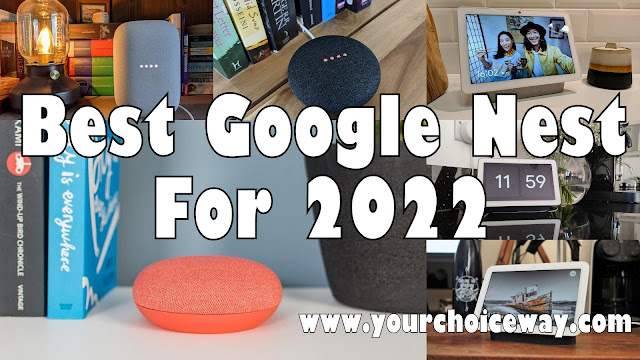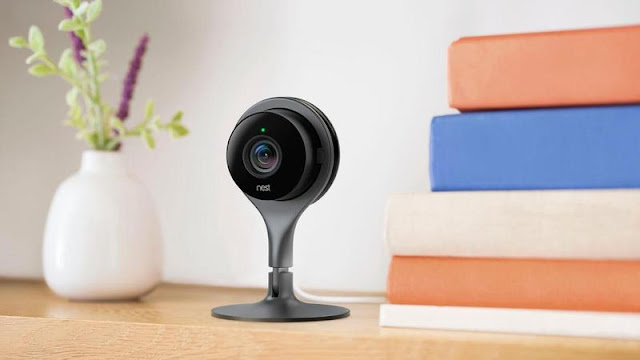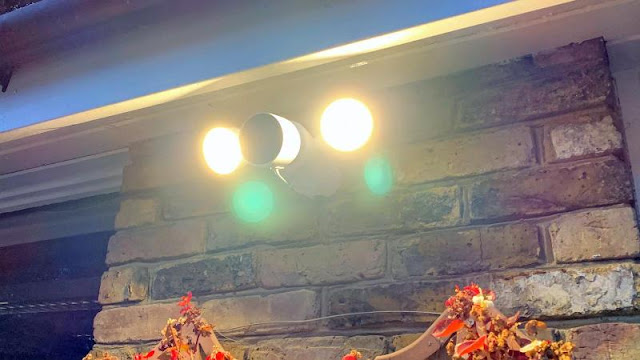Google Home Mini has all the functionality of other Google Home devices at a much more attractive price. We explain why this smart speaker should be top of your wish list in our Google Home Mini review
Should I Buy The Google Home Mini?
Our Verdict
- The cheapest smart speaker in Google's line-up, the Home Mini should not be underestimated. With surprisingly good - and loud - audio, full Google Assistant functionality and an incredible price, this could be the device you're looking for to take your first steps into the world of smart speakers.It's since been replaced by the Nest Mini, which packs better audio and faster processing, but the Home Mini is still worth considering if you can find it at less than full price.
Price When Reviewed
- $49
The Google Home Mini costs £49/$49 from Currys, AO and Argos, and is often reduced in sales, making it one of the best and cheapest ways to get you on the road to a smart home. It's cheap enough that you could even purchase one for every room of the house, linking them together to blast music and broadcast messages throughout your home, and control smart-home kit without lifting a muscle.
We love the standard Google Home, but the Mini offers the same functionality at a fraction of the price. It offers a fraction of the audio quality, too, but that doesn't make us love it any less.
In October 2019 Google released an upgraded Home Mini, the Nest Mini, which uses the same design but adds a new colour option, better audio, and extra processing power, all for the same price. The Nest Mini is unquestionably the better product, but the Home Mini is still well worth considering if you can find it below £30/$30, especially if you plan to connect it to Bluetooth speakers, when the audio quality is no longer a concern.
What Is The Google Home Mini?
The Google Home Mini is a small speaker, but not a portable one since it is always-on and needs to be plugged in via its Micro-USB port at all times (though you can now buy portable battery packs that allow you to use it away from mains power). If you wanted to, you could use it simply for playing music from your phone or tablet.
But you would be missing out on so much doing just this. This isn't just a Bluetooth speaker, it's also wireless, which means you can stream internet radio or connect it to your Google Play Music, Deezer, or Spotify account. Spotify Free accounts are also supported, but if you're not paying the monthly Google Music subscription only your playlists will be accessible.
In our opinion, the music streaming and support for multi-room audio alone make the Google Home Mini worth it. But that would be forgetting the Google Assistant, and that's what rockets this tiny box way out of the league of ordinary wireless speakers.
If you've purchased a new Android phone of late you may have already interacted with Google Assistant, but you'll find it far more useful here. In its new compact home Google Assistant is the dogsbody you've always wanted.
Want to know the weather for the day ahead? Ask it. Fancy hearing the latest headlines? Ask it. Need help solving a maths problem? Ask it. Not sure what you're doing this weekend? Ask it. Got a question only a Google search will resolve? You guessed it, ask Google Assistant.
The Google Assistant tells jokes, funny stories and interesting facts. It can host quiz games, sing you happy birthday, help the kids with their homework, set alarms and timers, play music and cast videos, movies and photo slideshows to your TV.
If you have any smart tech in your home - lights, heating, switches and so on - it can control it, and if it doesn't already have integrated support you'll likely be able to configure it through IFTTT, which is not as scary as it sounds. Partnerships are already in place for big names such as Philips Hue, Samsung SmartThings, Nest and WeMo and more will certainly follow.
Why Is The Google Assistant Better Than Amazon Alexa?
If you're new to smart speakers and the idea of smart virtual assistants, trying to work out whether you should go down the Amazon Echo route or the Google Home route could be tricky. Both offer reasonably cheap entry points (the Echo Dot also costs £49/$49), both are said to offer much the same functionality, and for now at least the Amazon Echo has by far the highest market share.
So why is that? For a start Amazon Echo came out in the UK a good year before Google Home, giving it the head start it needed to find its way into consumer homes all over the country. It used some of that time to build up its 'Skills' database, albeit with thousands of entries you will likely never use, such as apps that can insult you or tell you what noise a dog makes when given a very specific command. But it does - for now - have better native support for smart-home services than does Google Assistant.
It has also benefited from various Amazon deals days that see the Echo vastly reduced in price, making it worth a punt even if you're not sure about the whole concept of smart speakers. And, for a long time, it had no real competition. Today tech manufacturers are queuing up to reveal these type of devices with Alexa, Google Assistant or Cortana (Microsoft's offering) built in.
Amazon's Echo family are brilliant devices, but you shouldn't consider buying one if you don't subscribe to Amazon Prime. Also, Google Assistant is better.
Google Assistant doesn't need you to search for and enable skills to answer your queries - this device hails from Google, the daddy of online search. So while Alexa can handle the sort of queries that have a Wikipedia page, or shopping questions, Google Assistant can just run a web search for you and throw out the most likely result.
Use both side by side for only a short while and you'll see that Google Assistant is both more intelligent and more resourceful than Alexa. While it will try to answer any question you ask it, Alexa will more often than not return its favourite phrase: 'Hmmm, I don't know that one.'
But what we love most about Google Assistant is the ability to converse with it using very natural language, whereas Alexa prefers a more formulaic approach. It's also got a real personality, so it feels less like you're having a conversation with a box and more like you're chatting to an actual assistant. People skills are something Alexa definitely lacks.
Of course, we're not completely writing off Alexa, and one of our biggest gripes with the Google Assistant is that there is still no way to change the wake word from either "Okay Google" or "Hey Google". It doesn't sound like a big deal, but over time it becomes a real tongue twister. "Alexa" is simply a lot easier to say.
We also would have liked to seen an audio jack, as found on the Echo Dot, enabling you to hook up the Google Home Mini to a more powerful speaker. That's a big omission here, but something that has now been rectified with the ability to connect a speaker over Bluetooth.
Since launch, Google has added the ability to make calls with the Home devices. This means you can use your voice to say "Hey Google, call Mum" and it will know to call your mum, not someone else's - even when you have multiple users set up because it knows your voice.
You can also ask it to "call the nearest gift shop" or other local businesses. Google says the calling feature allows outgoing calls to most phone numbers in the UK, but doesn't support calls to emergency numbers such as 999 or premium rate numbers.
If you've decided to buy a speaker with the Google Assistant built-in, your next question will be why the Mini and not the standard box. There's obviously a huge difference in price between the £49/$49 Mini and the £89/$99 Google Home, so the Mini must be lacking something big, right?
Actually no, not really. Provided you're not placing the utmost importance on audio quality, anyway. The Mini is smaller simply because it has less powerful audio hardware, though in our tests we were surprised by how loud it was and how well it handled vocals, if not mids and lows. You might actually prefer its smaller footprint and new fabric covered design, too. The original Home also has a more comprehensive set of touch controls than the Mini, which is currently limited to volume level.
It also lacks Google Home's customisable bases, which are available at extra cost, but the Mini comes in a choice of three colours: Charcoal, Chalk and Coral, better known as black, grey and pink. Surely one of these will suit your home decor.
Design And Build
Google Home Mini is not simply a smaller version of the standard box. This is a small pebble-shaped device with a coloured fabric cover through which a row of four LEDs are visible. These light up to alert you when the Google Assistant is listening to you or thinking about your request.
We reckon it looks nicer than the original, and certainly nicer than the puck-like Amazon Echo Dot with which it competes. You'd proudly display the Google Home Mini within your home. But you might have to give it a dust every so often.
It's very lightweight at 173g, but the fact it must be always-on and always plugged in means you're unlikely to carry it around. A built-in battery would be handy, but you'd be forever re-charging it.
A rubber base (in the case of our black review sample a cool orange colour) stops it slipping on the surface. Here you'll also find a switch to turn off the microphone, should you want some privacy for whatever reason.
You can adjust volume on the Google Home Mini by tapping the left side of the device to turn down volume, and the right side to turn it up. But the top touch-sensitive area has been permanently disabled by Google because it was over-sensitive and listening in on conversations when it shouldn't. That's a shame, and hopefully not indicative of Google's quality control, but it's by no means a necessary feature.
It feels very nice to the touch, but unfortunately with the key touch feature disabled you're unlikely to be jabbing it too often. It's just as easy to control the volume by saying 'Okay Google, volume up' or 'Okay Google, volume 50 percent' from wherever you stand as it is to walk up to and physically tap either side of the device, though these controls are very sensitive.
Audio Quality
Inside the Google Home Mini is a single 40mm driver that offers 360-degree sound. It's bigger brother has three 2in drivers, so let's just say we weren't expecting great things from the Google Home Mini in terms of audio playback.
We were surprised. The Mini is loud enough to fill a room with sound, provided it is positioned carefully. It also does a great job with highs and vocals, and is perfect for playing the kind of pop music you find on mainstream radio stations, but it falls down further down the spectrum. It's not a bass speaker. If you want that you want the bigger (and pricier) Google Max.
The Mini isn't the best portable speaker we've ever heard and it's not going to win any awards for its playback potential. But it does the job. And for many people that's the most important thing.
They want music, they want it loud, and they want it in every room of the house. Google Home Mini can do that, with a little help from its friends when you set up multiroom audio.
We found Google Home Mini's twin built-in mics did a good job of understanding our commands, even when we were getting tongue-twisted over the wake command. You might need to raise your voice if music is playing loud, but overall it deals with background noise with minimal fuss.
Verdict
We're clearly big fans of the Google Assistant, and any device that makes it more accessible to the masses is well worth a second look in our book. If budget was no option then the standard Google Home offers significantly better audio quality, but for most people budget will unfortunately come into play should they wish to set up speakers in every room of the house.
Audiophiles aren't going to be impressed by Google Home Mini's reproduction of lows and mids, but we're not all audiophiles. Many users will be quite satisfied with its highs, and for everyday conversing with the Assistant the 40mm driver is adequate. Now that you can connect a Bluetooth speaker, there's a workaround for this in any case.
We do prefer Google Assistant to Alexa, despite its fewer 'Skills', but something we'd love to see Google borrow from Amazon is a more natural wake word and the Dot's AUX port.
The Home Mini is a bit less compelling now that the newer Nest Mini is out, but if you can find it for less than £49/$49 it remains a great way to add extra smart speakers round the house, especially in any rooms where audio quality isn't the main concern.
Specs
- Google Assistant
- 40mm driver, 360 sound
- Far field voice recognition with off switch
- Touch controls
- Dual-band 11ac Wi-Fi
- Bluetooth
- Android and iOS compatible
- Chromecast and Chromecast Audio built-in
- Micro-USB
- 98x42mm
- 173g


















0 comments:
Post a Comment